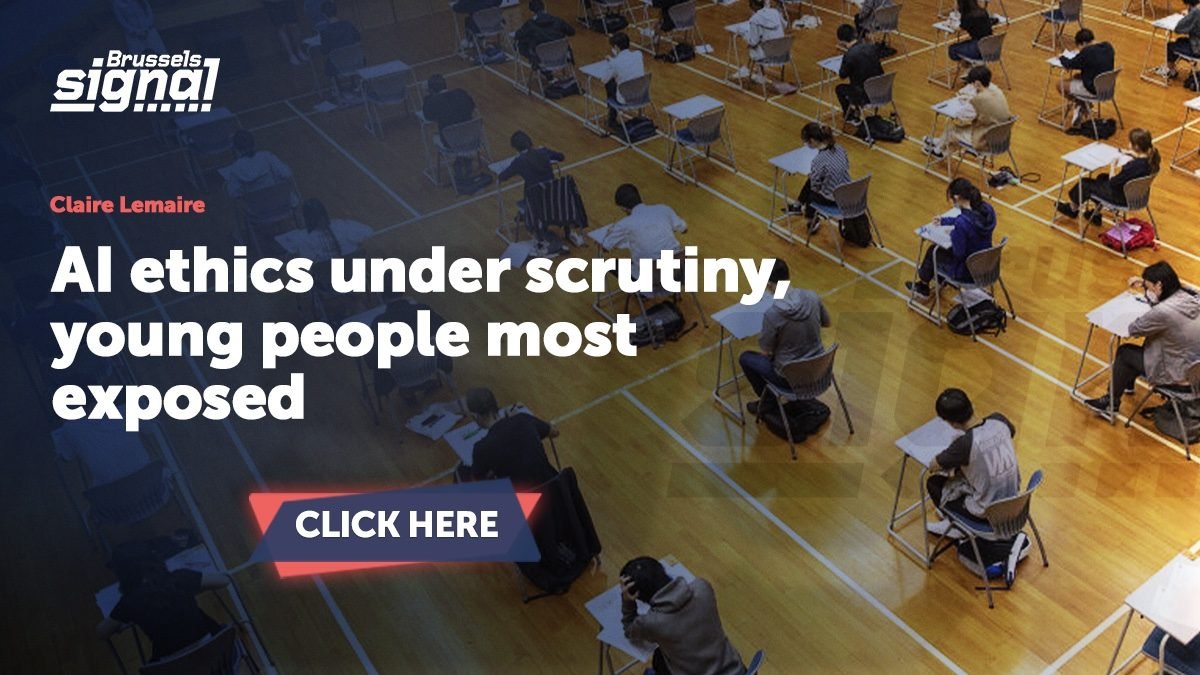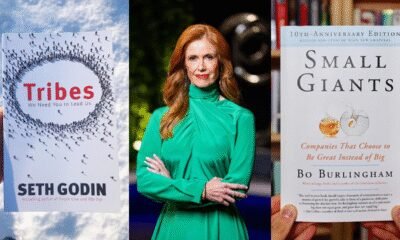Ethics & Policy
21 Best Books of the 21st Century | Features

21 Best Books of the 21st Century (Picture Credit – Instagram)
The 21st century has been a remarkable period for literature, offering a diverse array of books that challenge, inspire, and resonate with readers across the globe. From groundbreaking novels that explore the depths of human experience to non-fiction works that shed light on history, science, and society, these books have left an indelible mark on the literary landscape. We will explore 21 of the best books of the 21st century, each of which has captivated readers and critics alike with its storytelling, depth, and impact. Whether you’re looking for a new read or seeking to understand the literary highlights of this century, these books are a great place to start.
1. Atonement by Ian McEwan (2001)
‘Atonement’ is a masterful exploration of guilt, redemption, and the power of storytelling. Set against the backdrop of World War II, the novel follows the repercussions of a young girl’s false accusation, which changes the lives of everyone involved. McEwan’s prose is both elegant and haunting, weaving a narrative that questions the nature of truth and the possibility of forgiveness.

2. The Brief Wondrous Life of Oscar Wao by Junot Díaz (2007)
Junot Díaz’s ‘The Brief Wondrous Life of Oscar Wao’ is a vibrant, multi-generational tale that blends history, culture, and the supernatural. The novel tells the story of Oscar, an overweight Dominican boy in New Jersey, and his family’s curse, which dates back to the Dominican Republic’s Trujillo dictatorship. Díaz’s unique voice and narrative style make this novel a compelling exploration of identity, love, and the impact of history.
3. The Amazing Adventures of Kavalier & Clay by Michael Chabon (2000)
This Pulitzer Prize-winning novel explores the lives of two Jewish cousins, Joe Kavalier and Sam Clay, who create a comic book hero during the Golden Age of Comics. Set against the backdrop of World War II and its aftermath, ‘The Amazing Adventures of Kavalier & Clay’ delves into themes of escape, survival, and the transformative power of art. Chabon’s rich storytelling and vivid characters make this a modern classic.
4. 2666 by Roberto Bolaño (2004)
‘2666’ is an epic novel that intertwines multiple narratives, exploring the violence and corruption of contemporary society. Set in the fictional Mexican city of Santa Teresa, the novel delves into unsolved murders, literary scholarship, and the horrors of war. Bolaño’s ambitious work is a profound meditation on the nature of evil and the chaos of the modern world, earning its place as one of the most important literary works of the 21st century.
5. Middlesex by Jeffrey Eugenides (2002)
‘Middlesex’ is a Pulitzer Prize-winning novel that traces the life of Calliope Stephanides, an intersex man raised as a girl. The novel spans three generations of the Stephanides family, exploring themes of identity, gender, and the immigrant experience. Eugenides’ narrative is both epic and intimate, offering a deeply personal exploration of what it means to be different in a world that often demands conformity.

6. Never Let Me Go by Kazuo Ishiguro (2005)
In ‘Never Let Me Go’, Kazuo Ishiguro creates a dystopian world where children at a boarding school slowly realize their true purpose as clones created for organ donation. The novel is a haunting exploration of humanity, morality, and the ethical dilemmas of science. Ishiguro’s subtle and poignant storytelling makes this a deeply moving and thought-provoking read, questioning the nature of love, memory, and what it means to live a meaningful life.
7. Gilead by Marilynne Robinson (2004)
‘Gilead’ is a beautifully written novel in the form of a letter from an ageing pastor, John Ames, to his young son. Set in the 1950s in the small town of Gilead, Iowa, the novel explores themes of faith, family, and redemption. Robinson’s prose is lyrical and meditative, offering profound insights into the complexities of human relationships and the spiritual struggles that define our lives.
8. Wolf Hall by Hilary Mantel (2009)
‘Wolf Hall’ is a historical novel that reimagines the life of Thomas Cromwell, a key figure in the court of Henry VIII. Mantel’s meticulous research and vivid characterization bring to life the intrigue and power struggles of the Tudor court. The novel is both a gripping political drama and a deep psychological portrait of a man navigating the treacherous waters of ambition, loyalty, and survival.
9. The Kite Runner by Khaled Hosseini (2003)
‘The Kite Runner’ is a powerful story of friendship, betrayal, and redemption set against the backdrop of Afghanistan’s turbulent history. The novel follows Amir, a privileged boy, and his friendship with Hassan, the son of his father’s servant. Hosseini’s narrative is both heart-wrenching and uplifting, exploring the complexities of human relationships and the enduring impact of the past on the present.

10. White Teeth by Zadie Smith (2000)
Zadie Smith’s ‘White Teeth’ is a vibrant, multi-generational novel that explores race, culture, and identity in contemporary London. The story follows two families, the Joneses and the Iqbals, as they navigate the challenges of immigration, assimilation, and cultural heritage. Smith’s writing is witty and insightful, offering a sharp critique of the complexities and contradictions of modern multicultural society.
11. Shantaram by Gregory David Roberts (2003)
‘Shantaram’ is an epic novel based on the author’s own experiences as an escaped Australian convict in Mumbai. The story follows Lin, a man on the run, as he builds a new life in the slums of Mumbai and becomes involved in the city’s underworld. Roberts’ writing is rich in detail and emotion, capturing the vibrancy of Mumbai and the complexities of human relationships in a gripping and immersive narrative.
12. A Visit from the Goon Squad by Jennifer Egan (2010)
This Pulitzer Prize-winning novel intertwines the lives of various characters connected to the music industry, exploring themes of time, ageing, and the impact of technology on human connections. Egan’s innovative narrative structure, which includes a chapter written as a PowerPoint presentation, offers a fresh and engaging approach to storytelling. ‘A Visit from the Goon Squad’ is a poignant and thought-provoking meditation on the passage of time and how our lives intersect.
13. The Goldfinch by Donna Tartt (2013)
‘The Goldfinch’ is a Pulitzer Prize-winning novel that follows the life of Theo Decker, a boy who survives a terrorist bombing at an art museum. The novel explores themes of loss, beauty, and obsession, as Theo becomes fixated on a painting that he takes from the museum in the aftermath of the bombing. Tartt’s writing is both richly detailed and emotionally resonant, making this a captivating and deeply moving read.

14. Life of Pi by Yann Martel (2001)
‘Life of Pi’ is a fantastical tale of survival, spirituality, and storytelling, centred around Pi Patel, a boy stranded on a lifeboat with a Bengal tiger after a shipwreck. The novel explores themes of faith, resilience, and the power of imagination in the face of adversity. Martel’s narrative is both whimsical and profound, offering a unique and thought-provoking exploration of the human spirit.
15. Half of a Yellow Sun by Chimamanda Ngozi Adichie (2006)
Set during the Nigerian Civil War, ‘Half of a Yellow Sun’ tells the story of three characters Ugwu, Olanna, and Richard whose lives are intertwined by love, loyalty, and the horrors of war. Adichie’s novel is a powerful exploration of the impact of colonialism, the complexities of identity, and the brutal realities of conflict. With rich character development and evocative prose, this book is a testament to the human capacity for survival and love.
16. The Underground Railroad by Colson Whitehead (2016)
‘The Underground Railroad’ is a Pulitzer Prize-winning novel that reimagines the Underground Railroad as an actual train, offering a harrowing and surreal portrayal of slavery in America. The novel follows Cora, a runaway slave, as she embarks on a dangerous journey to freedom. Whitehead’s writing is both powerful and haunting, offering a unique and thought-provoking perspective on one of the darkest chapters in American history.
17. The Night Circus by Erin Morgenstern (2011)
The Night Circus is a mesmerizing fantasy novel that tells the story of a magical competition between two young illusionists, Celia and Marco. Set in a mysterious, travelling circus that only opens at night, the novel weaves together romance, mystery, and enchanting imagery. Morgenstern’s lyrical prose and imaginative world-building make this book a captivating read that transports readers to a place where magic and reality intertwine in unexpected ways.

18. The Immortal Life of Henrietta Lacks by Rebecca Skloot (2010)
This non-fiction book tells the story of Henrietta Lacks, an African American woman whose cancer cells were taken without her consent and used to create the first immortal human cell line. *The Immortal Life of Henrietta Lacks* explores the ethical issues surrounding medical research, the exploitation of African Americans, and the enduring impact of Lacks’s legacy. Skloot’s narrative is both informative and deeply moving, offering a powerful exploration of the intersection of science, ethics, and human dignity.
19. Sapiens: A Brief History of Humankind by Yuval Noah Harari (2011)
‘Sapiens’ is a groundbreaking work of non-fiction that explores the history of our species, from the emergence of Homo sapiens to the present day. Harari offers a sweeping and thought-provoking examination of the forces that have shaped human societies, from agriculture and religion to capitalism and technology. This book challenges readers to reconsider their understanding of history, culture, and the future of humanity.
20. The Road by Cormac McCarthy (2006)
‘The Road’ is a haunting post-apocalyptic novel that follows a father and his young son as they journey through a desolate landscape in search of safety. McCarthy’s writing is spare and poetic, capturing the bleakness of the world they inhabit and the depth of their bond. This novel is a powerful exploration of survival, love, and the enduring hope that drives the human spirit, even in the face of unimaginable loss.

21. The Shadow of the Wind by Carlos Ruiz Zafón (2001)
‘The Shadow of the Wind’ is a gripping mystery set in post-war Barcelona, where a young boy named Daniel discovers a forgotten book that leads him into a labyrinth of secrets, intrigue, and love. Zafón’s novel is a celebration of the power of books and storytelling, offering a richly atmospheric and captivating tale that will appeal to lovers of literature and mystery alike.
The 21st century has brought forth an incredible array of literature that speaks to the complexities of the human experience, from the intimate struggles of individual lives to the sweeping forces of history. These 21 books represent some of the finest works of fiction and non-fiction, each offering unique insights, unforgettable characters, and powerful narratives that resonate with readers across the globe. Whether you’re exploring issues of identity, survival, love, or morality, these books provide a rich tapestry of stories that will leave a lasting impact on your mind and heart. Adding these titles to your bookshelf is more than just a literary choice; it’s an invitation to engage with some of the most thought-provoking and emotionally resonant works of our time.
Ethics & Policy
5 interesting stats to start your week

Third of UK marketers have ‘dramatically’ changed AI approach since AI Act
More than a third (37%) of UK marketers say they have ‘dramatically’ changed their approach to AI, since the introduction of the European Union’s AI Act a year ago, according to research by SAP Emarsys.
Additionally, nearly half (44%) of UK marketers say their approach to AI is more ethical than it was this time last year, while 46% report a better understanding of AI ethics, and 48% claim full compliance with the AI Act, which is designed to ensure safe and transparent AI.
The act sets out a phased approach to regulating the technology, classifying models into risk categories and setting up legal, technological, and governance frameworks which will come into place over the next two years.
However, some marketers are sceptical about the legislation, with 28% raising concerns that the AI Act will lead to the end of innovation in marketing.
Source: SAP Emarsys
Shoppers more likely to trust user reviews than influencers
 Nearly two-thirds (65%) of UK consumers say they have made a purchase based on online reviews or comments from fellow shoppers, as opposed to 58% who say they have made a purchase thanks to a social media endorsement.
Nearly two-thirds (65%) of UK consumers say they have made a purchase based on online reviews or comments from fellow shoppers, as opposed to 58% who say they have made a purchase thanks to a social media endorsement.
Sports and leisure equipment (63%), decorative homewares (58%), luxury goods (56%), and cultural events (55%) are identified as product categories where consumers are most likely to find peer-to-peer information valuable.
Accurate product information was found to be a key factor in whether a review was positive or negative. Two-thirds (66%) of UK shoppers say that discrepancies between the product they receive and its description are a key reason for leaving negative reviews, whereas 40% of respondents say they have returned an item in the past year because the product details were inaccurate or misleading.
According to research by Akeeno, purchases driven by influencer activity have also declined since 2023, with 50% reporting having made a purchase based on influencer content in 2025 compared to 54% two years ago.
Source: Akeeno
77% of B2B marketing leaders say buyers still rely on their networks
 When vetting what brands to work with, 77% of B2B marketing leaders say potential buyers still look at the company’s wider network as well as its own channels.
When vetting what brands to work with, 77% of B2B marketing leaders say potential buyers still look at the company’s wider network as well as its own channels.
Given the amount of content professionals are faced with, they are more likely to rely on other professionals they already know and trust, according to research from LinkedIn.
More than two-fifths (43%) of B2B marketers globally say their network is still their primary source for advice at work, ahead of family and friends, search engines, and AI tools.
Additionally, younger professionals surveyed say they are still somewhat sceptical of AI, with three-quarters (75%) of 18- to 24-year-olds saying that even as AI becomes more advanced, there’s still no substitute for the intuition and insights they get from trusted colleagues.
Since professionals are more likely to trust content and advice from peers, marketers are now investing more in creators, employees, and subject matter experts to build trust. As a result, 80% of marketers say trusted creators are now essential to earning credibility with younger buyers.
Source: LinkedIn
Business confidence up 11 points but leaders remain concerned about economy
 Business leader confidence has increased slightly from last month, having risen from -72 in July to -61 in August.
Business leader confidence has increased slightly from last month, having risen from -72 in July to -61 in August.
The IoD Directors’ Economic Confidence Index, which measures business leader optimism in prospects for the UK economy, is now back to where it was immediately after last year’s Budget.
This improvement comes from several factors, including the rise in investment intentions (up from -27 in July to -8 in August), the rise in headcount expectations from -23 to -4 over the same period, and the increase in revenue expectations from -8 to 12.
Additionally, business leaders’ confidence in their own organisations is also up, standing at 1 in August compared to -9 in July.
Several factors were identified as being of concern for business leaders; these include UK economic conditions at 76%, up from 67% in May, and both employment taxes (remaining at 59%) and business taxes (up to 47%, from 45%) continuing to be of significant concern.
Source: The Institute of Directors
Total volume of alcohol sold in retail down 2.3%
 The total volume of alcohol sold in retail has fallen by 2.3% in the first half of 2025 compared to the previous year, equivalent to 90 million fewer litres. Value sales are also down by 1.1% compared to the same period in 2024.
The total volume of alcohol sold in retail has fallen by 2.3% in the first half of 2025 compared to the previous year, equivalent to 90 million fewer litres. Value sales are also down by 1.1% compared to the same period in 2024.
At the same time, retail sales of non-alcoholic drinks have increased by 5.5% compared to last year, while volume sales are up by 2.3%, equivalent to a further 1.5 billion litres.
As the demand for non-alcoholic beverages grows, people increasingly expect these options to be available in their local bars and restaurants, with 55% of Brits and Europeans now expecting bars to always serve non-alcoholic beer.
As well as this, there are shifts happening within the alcoholic beverages category with value sales of no and low-alcohol spirits rising by 16.1%, and sales of ready-to-drink spirits growing by 11.6% compared to last year.
Source: Circana
Ethics & Policy
AI ethics under scrutiny, young people most exposed

New reports into the rise of artificial intelligence (AI) showed incidents linked to ethical breaches have more than doubled in just two years.
At the same time, entry-level job opportunities have been shrinking, partly due to the spread of this automation.
AI is moving from the margins to the mainstream at extraordinary speed and both workplaces and universities are struggling to keep up.
Tools such as ChatGPT, Gemini and Claude are now being used to draft emails, analyse data, write code, mark essays and even decide who gets a job interview.
Alongside this rapid rollout, a March report from McKinsey, one by the OECD in July and an earlier Rand report warned of a sharp increase in ethical controversies — from cheating scandals in exams to biased recruitment systems and cybersecurity threats — leaving regulators and institutions scrambling to respond.
The McKinsey survey said almost eight in 10 organisations now used AI in at least one business function, up from half in 2022.
While adoption promises faster workflows and lower costs, many companies deploy AI without clear policies. Universities face similar struggles, with students increasingly relying on AI for assignments and exams while academic rules remain inconsistent, it said.
The OECD’s AI Incidents and Hazards Monitor reported that ethical and operational issues involving AI have more than doubled since 2022.
Common concerns included accountability — who is responsible when AI errs; transparency — whether users understand AI decisions; and fairness, whether AI discriminates against certain groups.
Many models operated as “black boxes”, producing results without explanation, making errors hard to detect and correct, it said.
In workplaces, AI is used to screen CVs, rank applicants, and monitor performance. Yet studies show AI trained on historical data can replicate biases, unintentionally favouring certain groups.
Rand reported that AI was also used to manipulate information, influence decisions in sensitive sectors, and conduct cyberattacks.
Meanwhile, 41 per cent of professionals report that AI-driven change is harming their mental health, with younger workers feeling most anxious about job security.
LinkedIn data showed that entry-level roles in the US have fallen by more than 35 per cent since 2023, while 63 per cent of executives expected AI to replace tasks currently done by junior staff.
Aneesh Raman, LinkedIn’s chief economic opportunity officer, described this as “a perfect storm” for new graduates: Hiring freezes, economic uncertainty and AI disruption, as the BBC reported August 26.
LinkedIn forecasts that 70 per cent of jobs will look very different by 2030.
Recent Stanford research confirmed that employment among early-career workers in AI-exposed roles has dropped 13 per cent since generative AI became widespread, while more experienced workers or less AI-exposed roles remained stable.
Companies are adjusting through layoffs rather than pay cuts, squeezing younger workers out, it found.
In Belgium, AI ethics and fairness debates have intensified following a scandal in Flanders’ medical entrance exams.
Investigators caught three candidates using ChatGPT during the test.
Separately, 19 students filed appeals, suspecting others may have used AI unfairly after unusually high pass rates: Some 2,608 of 5,544 participants passed but only 1,741 could enter medical school. The success rate jumped to 47 per cent from 18.9 per cent in 2024, raising concerns about fairness and potential AI misuse.
Flemish education minister Zuhal Demir condemned the incidents, saying students who used AI had “cheated themselves, the university and society”.
Exam commission chair Professor Jan Eggermont noted that the higher pass rate might also reflect easier questions, which were deliberately simplified after the previous year’s exam proved excessively difficult, as well as the record number of participants, rather than AI-assisted cheating alone.
French-speaking universities, in the other part of the country, were not concerned by this scandal, as they still conduct medical entrance exams entirely on paper, something Demir said he was considering going back to.
Ethics & Policy
Governing AI with inclusion: An Egyptian model for the Global South

When artificial intelligence tools began spreading beyond technical circles and into the hands of everyday users, I saw a real opportunity to understand this profound transformation and harness AI’s potential to benefit Egypt as a state and its citizens. I also had questions: Is AI truly a national priority for Egypt? Do we need a legal framework to regulate it? Does it provide adequate protection for citizens? And is it safe enough for vulnerable groups like women and children?
These questions were not rhetorical. They were the drivers behind my decision to work on a legislative proposal for AI governance. My goal was to craft a national framework rooted in inclusion, dialogue, and development, one that does not simply follow global trends but actively shapes them to serve our society’s interests. The journey Egypt undertook can offer inspiration for other countries navigating the path toward fair and inclusive digital policies.
Egypt’s AI Development Journey
Over the past five years, Egypt has accelerated its commitment to AI as a pillar of its Egypt Vision 2030 for sustainable development. In May 2021, the government launched its first National AI Strategy, focusing on capacity building, integrating AI in the public sector, and fostering international collaboration. A National AI Council was established under the Ministry of Communications and Information Technology (MCIT) to oversee implementation. In January 2025, President Abdel Fattah El-Sisi unveiled the second National AI Strategy (2025–2030), which is built around six pillars: governance, technology, data, infrastructure, ecosystem development, and capacity building.
Since then, the MCIT has launched several initiatives, including training 100,000 young people through the “Our Future is Digital” programme, partnering with UNESCO to assess AI readiness, and integrating AI into health, education, and infrastructure projects. Today, Egypt hosts AI research centres, university departments, and partnerships with global tech companies—positioning itself as a regional innovation hub.
AI-led education reform
AI is not reserved for startups and hospitals. In May 2025, President El-Sisi instructed the government to consider introducing AI as a compulsory subject in pre-university education. In April 2025, I formally submitted a parliamentary request and another to the Deputy Prime Minister, suggesting that the government include AI education as part of a broader vision to prepare future generations, as outlined in Egypt’s initial AI strategy. The political leadership’s support for this proposal highlighted the value of synergy between decision-makers and civil society. The Ministries of Education and Communications are now exploring how to integrate AI concepts, ethics, and basic programming into school curricula.
From dialogue to legislation: My journey in AI policymaking
As Deputy Chair of the Foreign Affairs Committee in Parliament, I believe AI policymaking should not be confined to closed-door discussions. It must include all voices. In shaping Egypt’s AI policy, we brought together:
- The private sector, from startups to multinationals, will contribute its views on regulations, data protection, and innovation.
- Civil society – to emphasise ethical AI, algorithmic justice, and protection of vulnerable groups.
- International organisations, such as the OECD, UNDP, and UNESCO, share global best practices and experiences.
- Academic institutions – I co-hosted policy dialogues with the American University in Cairo and the American Chamber of Commerce (AmCham) to discuss governance standards and capacity development.
From recommendations to action: The government listening session
To transform dialogue into real policy, I formally requested the MCIT to host a listening session focused solely on the private sector. Over 70 companies and experts attended, sharing their recommendations directly with government officials.
This marked a key turning point, transitioning the initiative from a parliamentary effort into a participatory, cross-sectoral collaboration.
Drafting the law: Objectives, transparency, and risk-based classification
Based on these consultations, participants developed a legislative proposal grounded in transparency, fairness, and inclusivity. The proposed law includes the following core objectives:
- Support education and scientific research in the field of artificial intelligence
- Provide specific protection for individuals and groups most vulnerable to the potential risks of AI technologies
- Govern AI systems in alignment with Egypt’s international commitments and national legal framework
- Enhance Egypt’s position as a regional and international hub for AI innovation, in partnership with development institutions
- Support and encourage private sector investment in the field of AI, especially for startups and small enterprises
- Promote Egypt’s transition to a digital economy powered by advanced technologies and AI
To operationalise these objectives, the bill includes:
- Clear definitions of AI systems
- Data protection measures aligned with Egypt’s 2020 Personal Data Protection Law
- Mandatory algorithmic fairness, transparency, and auditability
- Incentives for innovation, such as AI incubators and R&D centres
Establishment of ethics committees and training programmes for public sector staff
The draft law also introduces a risk-based classification framework, aligning it with global best practices, which categorises AI systems into three tiers:
1. Prohibited AI systems – These are banned outright due to unacceptable risks, including harm to safety, rights, or public order.
2. High-risk AI systems – These require prior approval, detailed documentation, transparency, and ongoing regulatory oversight. Common examples include AI used in healthcare, law enforcement, critical infrastructure, and education.
3. Limited-risk AI systems – These are permitted with minimal safeguards, such as user transparency, labelling of AI-generated content, and optional user consent. Examples include recommendation engines and chatbots.
This classification system ensures proportionality in regulation, protecting the public interest without stifling innovation.
Global recognition: The IPU applauds Egypt’s model
The Inter-Parliamentary Union (IPU), representing over 179 national parliaments, praised Egypt’s AI bill as a model for inclusive AI governance. It highlighted that involving all stakeholders builds public trust in digital policy and reinforces the legitimacy of technology laws.
Key lessons learned
- Inclusion builds trust – Multistakeholder participation leads to more practical and sustainable policies.
- Political will matters – President El-Sisi’s support elevated AI from a tech topic to a national priority.
- Laws evolve through experience – Our draft legislation is designed to be updated as the field develops.
- Education is the ultimate infrastructure – Bridging the future digital divide begins in the classroom.
- Ethics come first – From the outset, we established values that focus on fairness, transparency, and non-discrimination.
Challenges ahead
As the draft bill progresses into final legislation and implementation, several challenges lie ahead:
- Training regulators on AI fundamentals
- Equipping public institutions to adopt ethical AI
- Reducing the urban-rural digital divide
- Ensuring national sovereignty over data
- Enhancing Egypt’s global role as a policymaker—not just a policy recipient
Ensuring representation in AI policy
As a female legislator leading this effort, it was important for me to prioritise the representation of women, youth, and marginalised groups in technology policymaking. If AI is built on biased data, it reproduces those biases. That’s why the policymaking table must be round, diverse, and representative.
A vision for the region
I look forward to seeing Egypt:
- Advance regional AI policy partnerships across the Middle East and Africa
- Embedd AI ethics in all levels of education
- Invest in AI for the public good
Because AI should serve people—not control them.
Better laws for a better future
This journey taught me that governing AI requires courage to legislate before all the answers are known—and humility to listen to every voice. Egypt’s experience isn’t just about technology; it’s about building trust and shared ownership. And perhaps that’s the most important infrastructure of all.
The post Governing AI with inclusion: An Egyptian model for the Global South appeared first on OECD.AI.
-

 Business3 days ago
Business3 days agoThe Guardian view on Trump and the Fed: independence is no substitute for accountability | Editorial
-
Tools & Platforms3 weeks ago
Building Trust in Military AI Starts with Opening the Black Box – War on the Rocks
-

 Ethics & Policy1 month ago
Ethics & Policy1 month agoSDAIA Supports Saudi Arabia’s Leadership in Shaping Global AI Ethics, Policy, and Research – وكالة الأنباء السعودية
-

 Events & Conferences3 months ago
Events & Conferences3 months agoJourney to 1000 models: Scaling Instagram’s recommendation system
-

 Jobs & Careers2 months ago
Jobs & Careers2 months agoMumbai-based Perplexity Alternative Has 60k+ Users Without Funding
-

 Funding & Business2 months ago
Funding & Business2 months agoKayak and Expedia race to build AI travel agents that turn social posts into itineraries
-

 Education2 months ago
Education2 months agoVEX Robotics launches AI-powered classroom robotics system
-

 Podcasts & Talks2 months ago
Podcasts & Talks2 months agoHappy 4th of July! 🎆 Made with Veo 3 in Gemini
-

 Podcasts & Talks2 months ago
Podcasts & Talks2 months agoOpenAI 🤝 @teamganassi
-

 Mergers & Acquisitions2 months ago
Mergers & Acquisitions2 months agoDonald Trump suggests US government review subsidies to Elon Musk’s companies





















